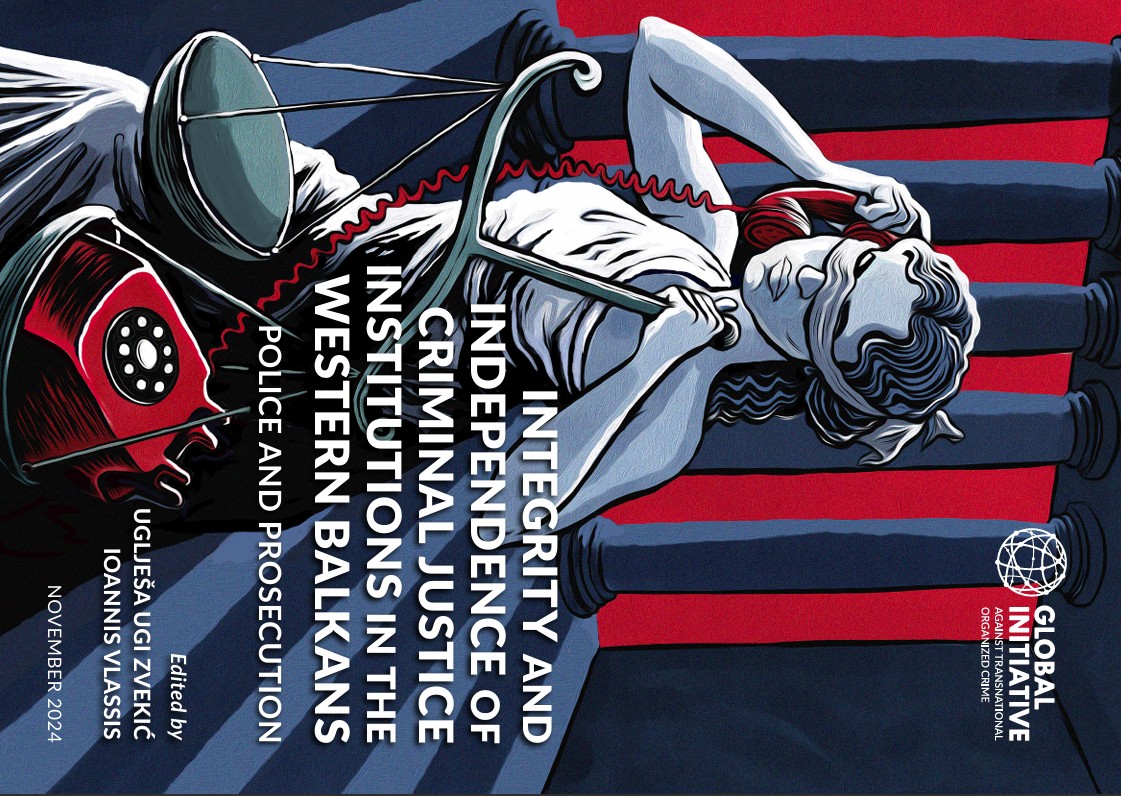
United Nations International Day for the Prevention of and Fight Against All Forms of Transnational Organized Crime. Established by a UN General Assembly resolution on March 21, 2024, this day emphasizes the urgent need to address the harmful effects of transnational organized crime on global security and sustainable development.
This day raises awareness about the threats posed by organized crime and highlights its importance in achieving the 2030 Agenda for Sustainable Development. Today, Global Initiative released a report looking at organized crime in 2040, revealing that criminal networks could operate as shadow governments bolstered by authoritarian regimes and advanced technology.
Importantly, we must remember and honor all victims of organized crime, particularly those like Minerva Pérez, who have lost their lives to protect communities from the lethal impact of criminal economies. Enhancing protections for frontline workers and ensuring accountability for offenders is vital.
One day is not enough: Raising awareness and taking action must be ongoing efforts. While UN member states recognize the vital roles of civil society, NGOs, the private sector, and academia in combating these crimes, we remain committed to this cause at the Global Initiative and depend on
One of the reasons why United Nations Member States decided to commemorate this International Day is the concern expressed in the resolution that we are "deeply concerned about the negative impact of transnational organized crime on security, stability, the rule of law, and sustainable development." What are the harms caused by organized crime? It fuels and sustains conflicts, potentially threatening national security and international peace and stability, causes violence resulting in tens of thousands of deaths and injuries annually, creates unfair advantages and purchasing power through violence and corruption, secures opportunities and impunity, thereby undermining democracy and the rule of law, leads to environmental degradation, harms economies, disrupts development, severely affects youth as both victims and perpetrators, violates human rights and fundamental freedoms, and disrupts the social fabric of affected communities and societies.
The United Nations Member States recognize the importance of preventing and combating transnational organized crime, especially its significance in implementing the 2030 Agenda for Sustainable Development.
This requires greater attention to what we refer to as "organized corruption." It also means explaining the harms of organized crime, particularly to those vulnerable to its effects, and providing viable alternatives to illegal livelihoods. Prevention further demands social and behavioral changes to shift attitudes and market dynamics.
your engagement to further strengthen our fight against transnational organized crime.
The Global Initiative is an independent civil-society organization, headquartered in Geneva, Switzerland, with a globally dispersed Secretariat and a high-level advisory board.
Its network members include prominent law-enforcement, governance and development practitioners who are dedicated to seeking new and innovative strategies and responses to organized crime.
The Global Initiative was born from a series of high-level, off the record discussions between mainly (though not exclusively) law-enforcement officials from both developed and developing countries in New York in 2011–12. At these meetings, the founding members of the Global Initiative, many of whom stand at the front line of the fight against organized crime, illicit trafficking and trade, concluded that the problem and its impacts are not well analyzed; they are not systematically integrated into national plans or strategies; existing multilateral tools are not structured to facilitate a response; and existing forms of cooperation tend to be bilateral, slow and restricted to a limited number of like-minded states.
The result was the creation of the Global Initiative against Transnational Organized Crime, which provides a platform to promote greater debate and innovative approaches, which serve as the building blocks to an inclusive global strategy against organized crime.

